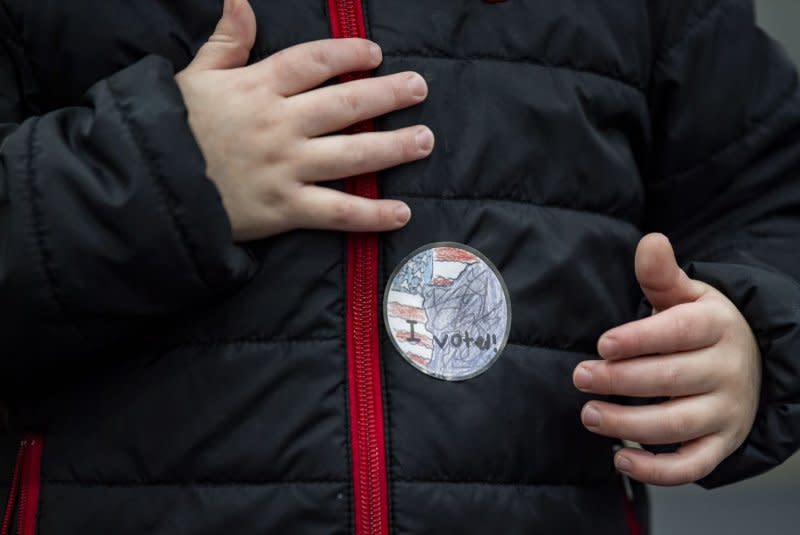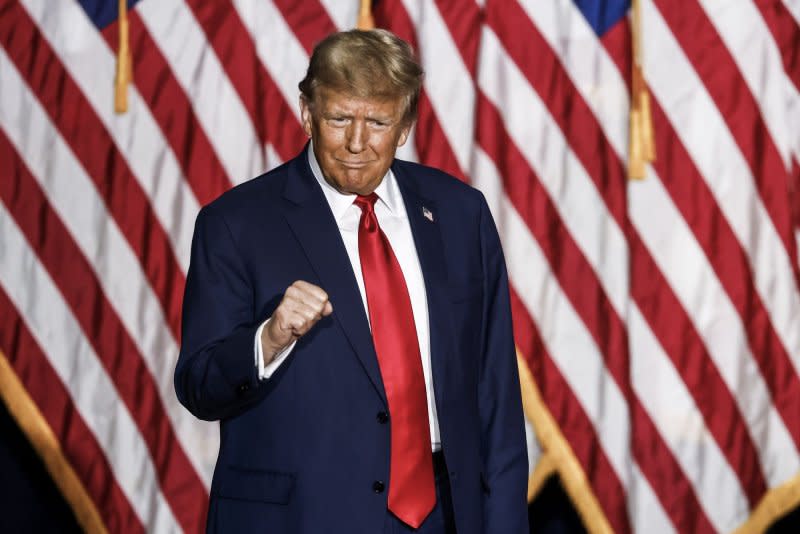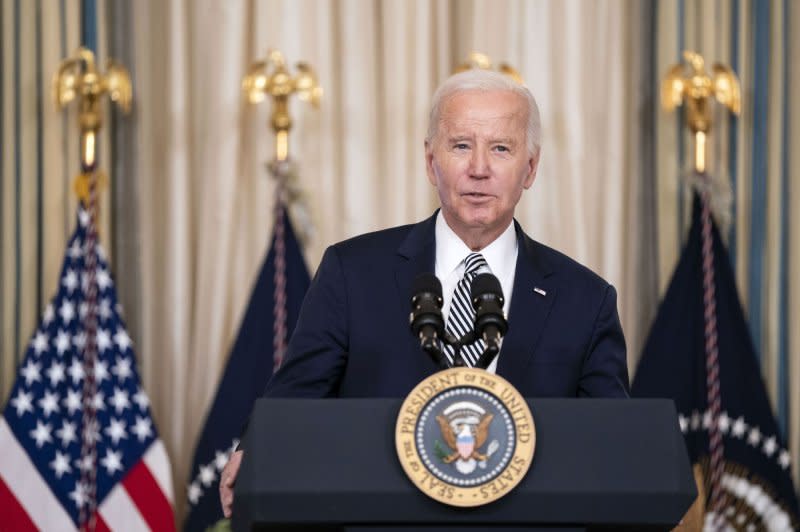2024 U.S. presidential election will test the limits of free speech

- Oops!Something went wrong.Please try again later.
One of the most serious and yet invisible consequences of the 2024 election will be testing the limits to free speech. Indeed, the question may be if free speech will survive this election.
This is what the First Amendment actually says:
"Congress shall make no law respecting an establishment of religion, or prohibiting the free exercise thereof; or abridging the freedom of speech, or of the press; or the right of the people peaceably to assemble, and to petition the government for a redress of grievances."
Yet, what does "freedom of speech" mean? Is it definable within the confines of the law? Yelling fire in a crowded movie theater clearly is not an exercise of free speech. But what about making incendiary statements, telling outrageous lies or using the crassest language to insult others. And what will be the consequences of artificial intelligence and "deep fakes" that allow the most fraudulent lies to be visualized and seem authentic?
The testimony of three Ivy League presidents before the House of Representatives on free speech at their universities led to the firing and resignation of two. Donald Trump has made the most provocative and insulting statements about his opponents. Possibly in jest, Trump told an audience that becoming a dictator might be a good idea.

Shockingly, Trump asserted that presidents should have immunity for "events that cross the line." And his attorneys suggested in court that "even a president directing SEAL Team 6 to kill a political opponent would be...barred from prosecution...given a former executive's broad immunity to criminal prosecution."
Really?

In 2016 at a campaign stop in Iowa, Trump bragged, "I could stand in the middle of Fifth Avenue and shoot somebody, and I wouldn't lose any voters, OK?" According to the Washington Post fact checker, during his four years as president, Trump made 30,573 false, misleading or untruthful statements. That record has not changed after leaving the White House. Trump rarely allows truth and fact to affect his rhetoric.
All presidents distort, misrepresent and often lie during their presidencies. Richard Nixon's claim he was innocent of involvement in Watergate and Bill Clinton's assertion he "did not have sex with that woman" are among the most memorable of outright presidential lies. Each was held accountable. Nixon was forced to resign. Clinton was impeached but not convicted.
Trump was impeached twice, but not for lying. In the first case, Trump was charged was interfering with a foreign government, Ukraine, to promote his election. In the second, Trump was indicted for provoking an insurgency. The Senate acquitted both and Trump claimed the impeachments were politically motivated by Democrats.
Joe Biden has not been unscathed by accusations of lying and plagiarism. Republicans have long lists of examples, although many accusations, such as running "the Biden crime family," have no substance. In 1987, Biden lifted parts of a speech delivered by British Labor Party leader Neil Kinnock that ended his presidential aspirations then. However, free speech was not an issue in the past. It will be in 2024.
The so-called "truthers" who outrageously lie and make preposterous claims lacking proof or evidence exacerbate free speech. The most recent outrage perpetrated by real estate agent Mirela Monte that the Hamas Oct. 7 attack was staged by Israel is one example. Media censorship in some cases may be a solution when the lies are so ludicrous. However, what happens when these lies are believed?
In the New Hampshire primary, AI unleashed robocalls from a fake Biden telling Democrats not to vote in the primary. It is not difficult to imagine what lies ahead as the November election draws closer. The most compromising and demeaning videos will emerge. Sadly, as with "truthers," some will be believed, widely reported by the media, and become part of the electoral process in selecting the next president.
This is the endless conflict raised by free speech and exploited by those doing ill and applying AI to create these distortions and lies. Any constraints for whatever reasons intrude on the First Amendment. That allows free speech to become free license to say anything.
In 2021, Jan. 6 was the symptom of a potential breakdown of our democratic process. 2024 is ripe for even worse. One cure is self-restraint on the part of the contenders.
That Trump would ever exercise self-restraint in his campaign is not even a hope. Would Biden or the Democrat follow suit? If yes, the first victim will be free speech. The second will be America and its democracy.
Harlan Ullman is UPI's Arnaud de Borchgrave Distinguished Columnist, a senior adviser at Washington's Atlantic Council, the prime author of "shock and awe" and author of "The Fifth Horseman and the New MAD: How Massive Attacks of Disruption Became the Looming Existential Danger to a Divided Nation and the World at Large." Follow him @harlankullman. The views and opinions expressed in this commentary are solely those of the author.
This article has been updated to correct that Neil Kinnock served as Labor Party leader in Britain, not prime minister.

